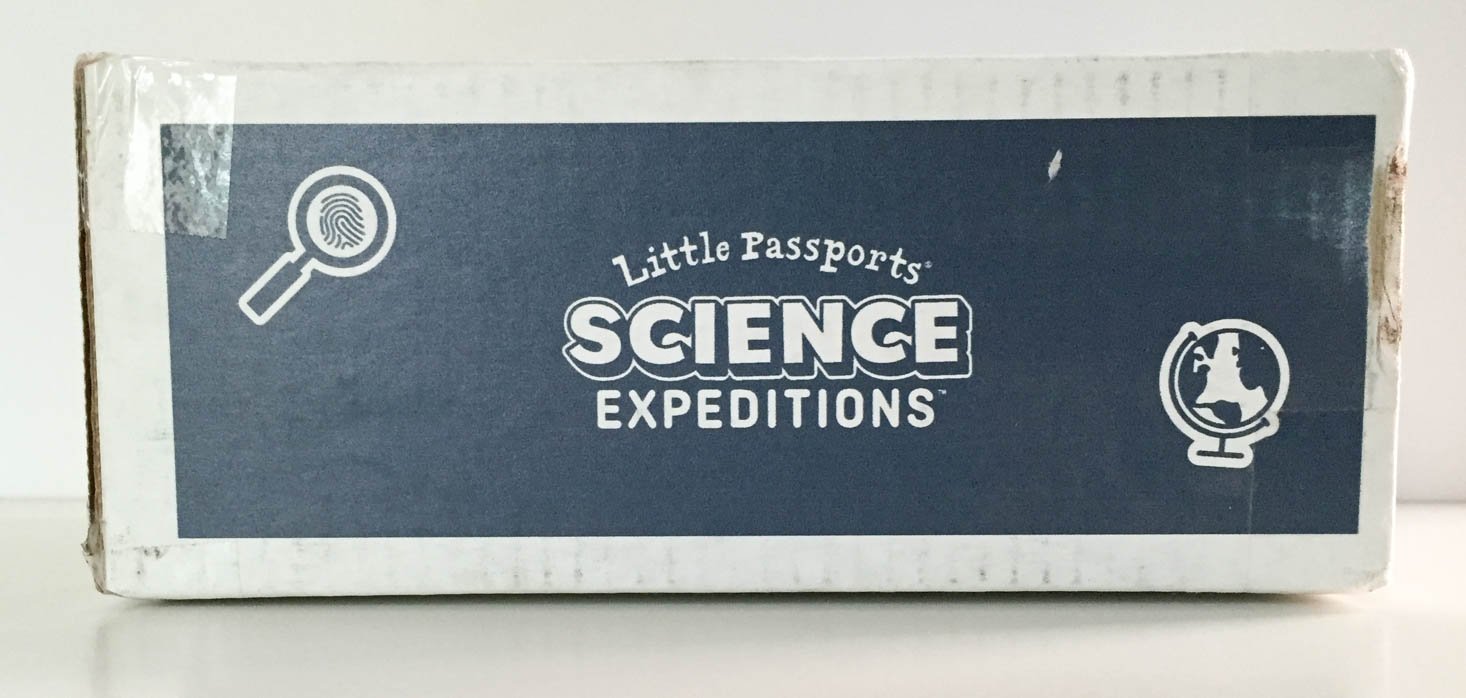
When my kids were younger, we subscribed to Little Passports World Edition and Little Passports USA Edition, so we have been big fans of Little Passports for a long time now. I was thrilled to see that they recently unveiled their newest offering, Little Passports Science Expeditions, and doubly thrilled that we got the chance to try it right away!
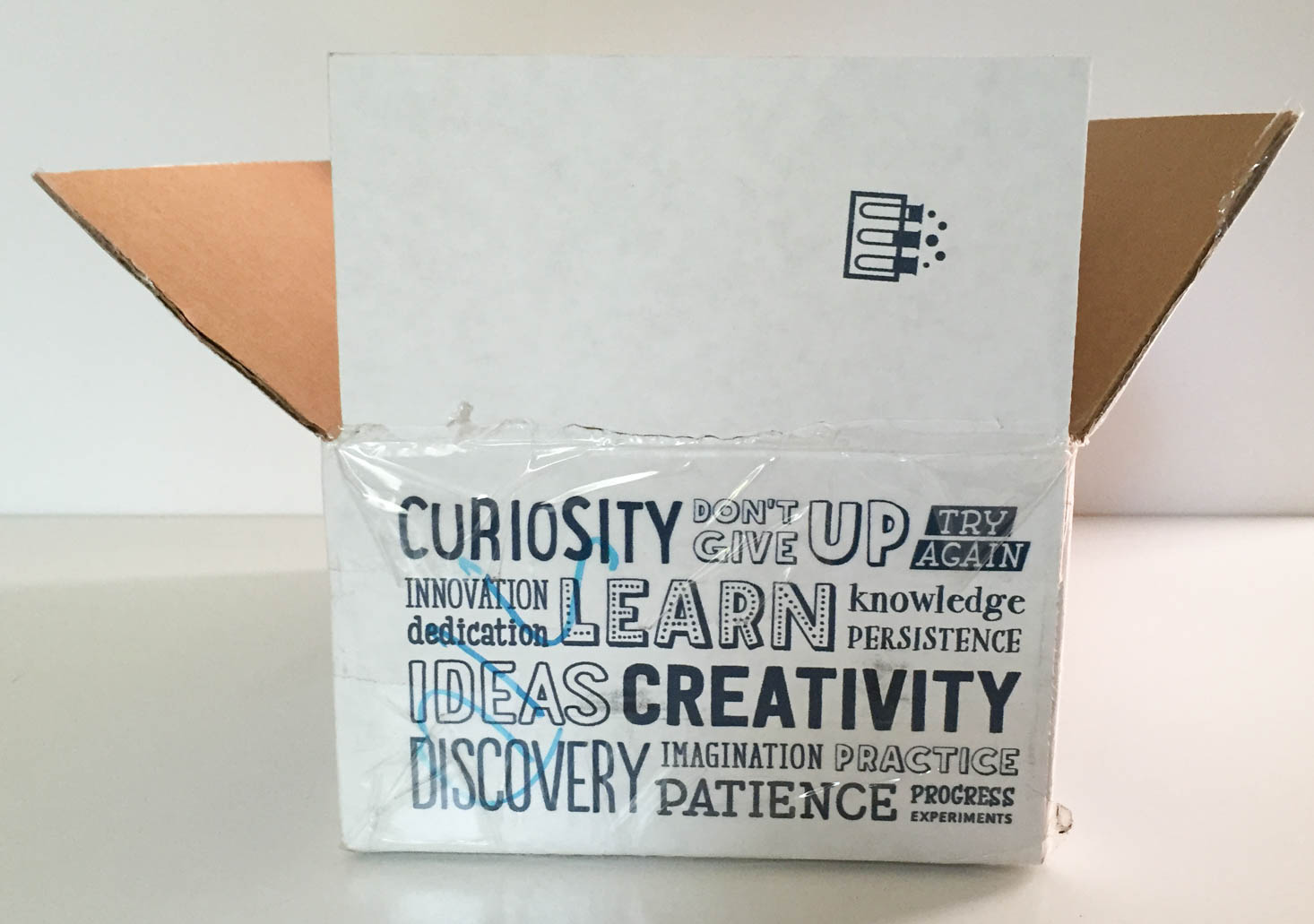
This box was sent to us at no cost to review. (Check out our review process post to learn more about how we review boxes.)
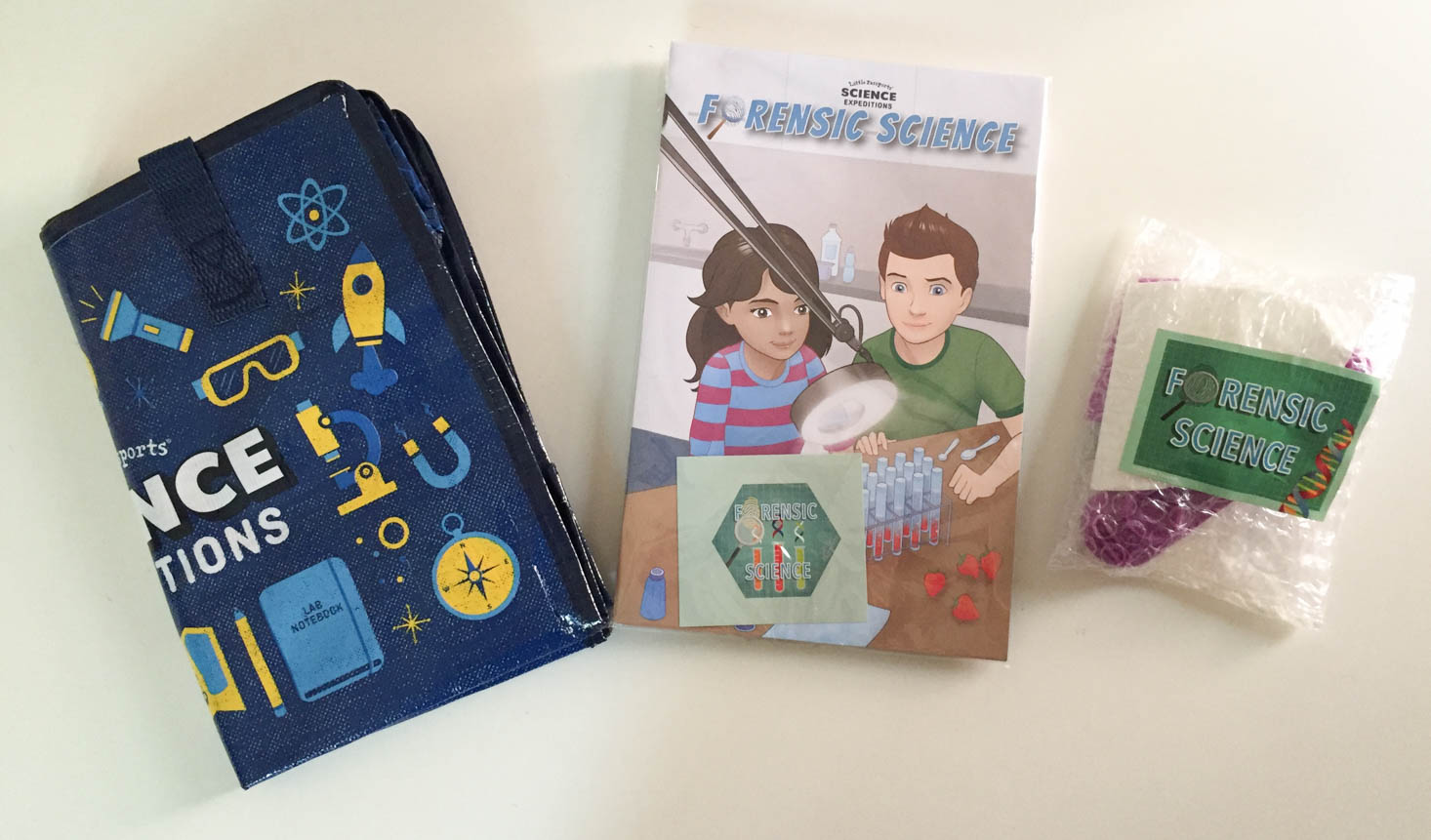
The Subscription Box: Little Passports Science Expeditions
The Cost: $20.95 + $3 shipping = $23.95 per month with discounts available for 3-, 6-, and 12-month plans
The Products: Science experiment kits plus a comic book related to the monthly theme, designed for children ages 9+
Ships to: USA for $3, Canada for $4.50, and AU, DK, FR, DE, HK, IE, IL, JP, NL, NZ, SG, KR, and SE for $5.50
Check out all of our Little Passports reviews and the Kids Subscription Box Directory!
Keep Track of Your Subscriptions: Add this box to your subscription list or wishlist!
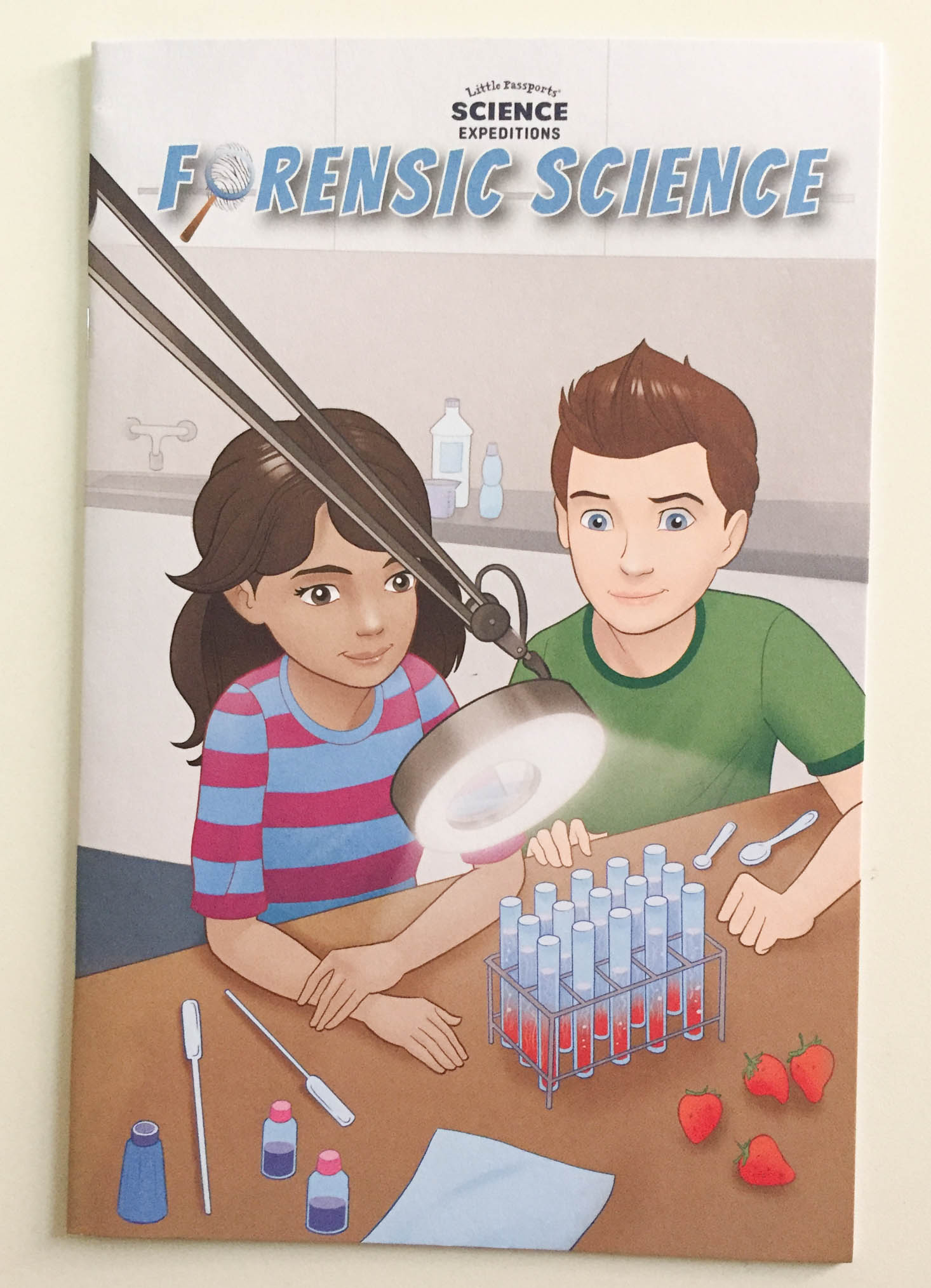
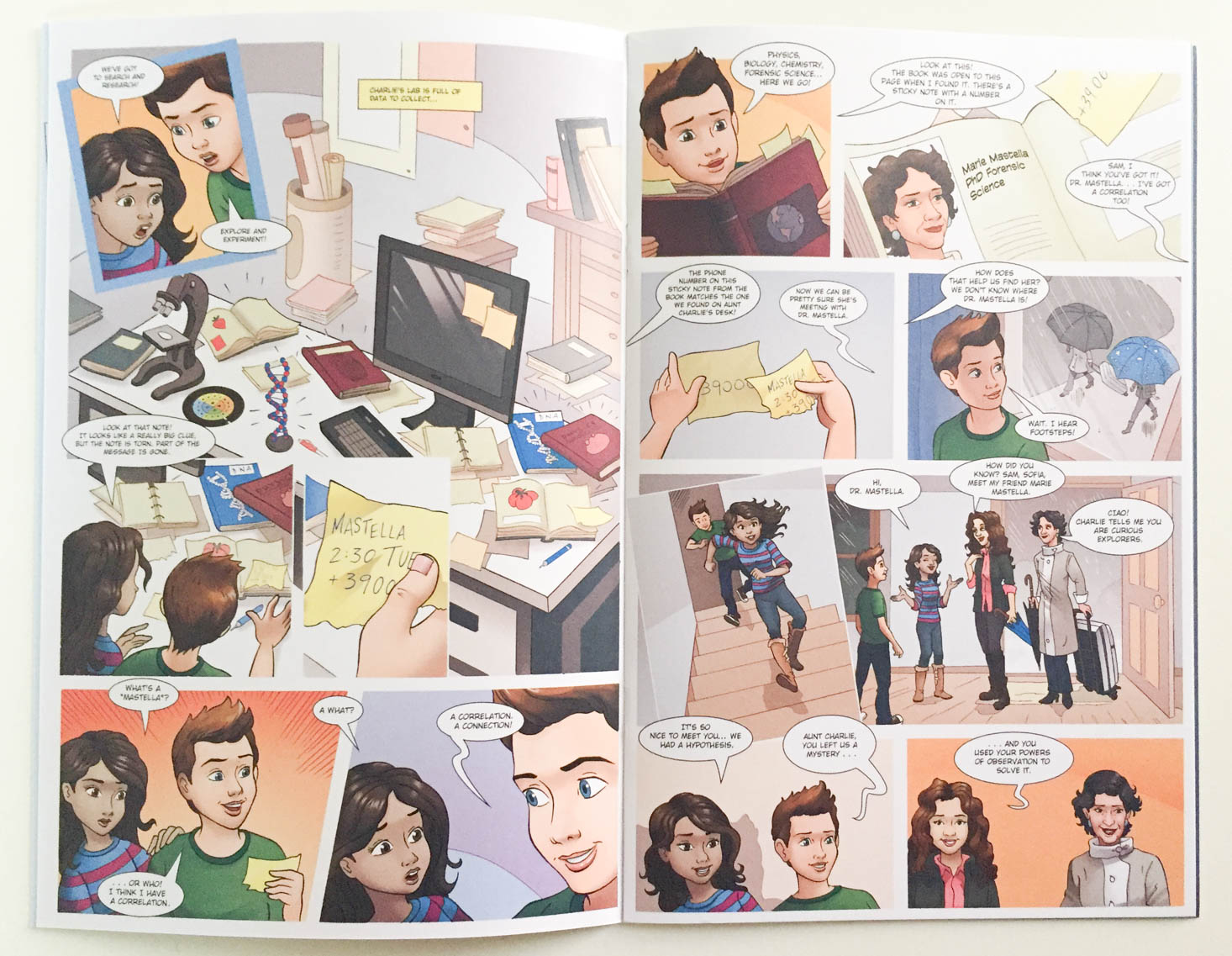
Look! Sam and Sofia, the Little Passports characters, are back to guide us through the world of science! This is the comic book that was included, and it includes some activities as well. This month's theme is Forensic Science!
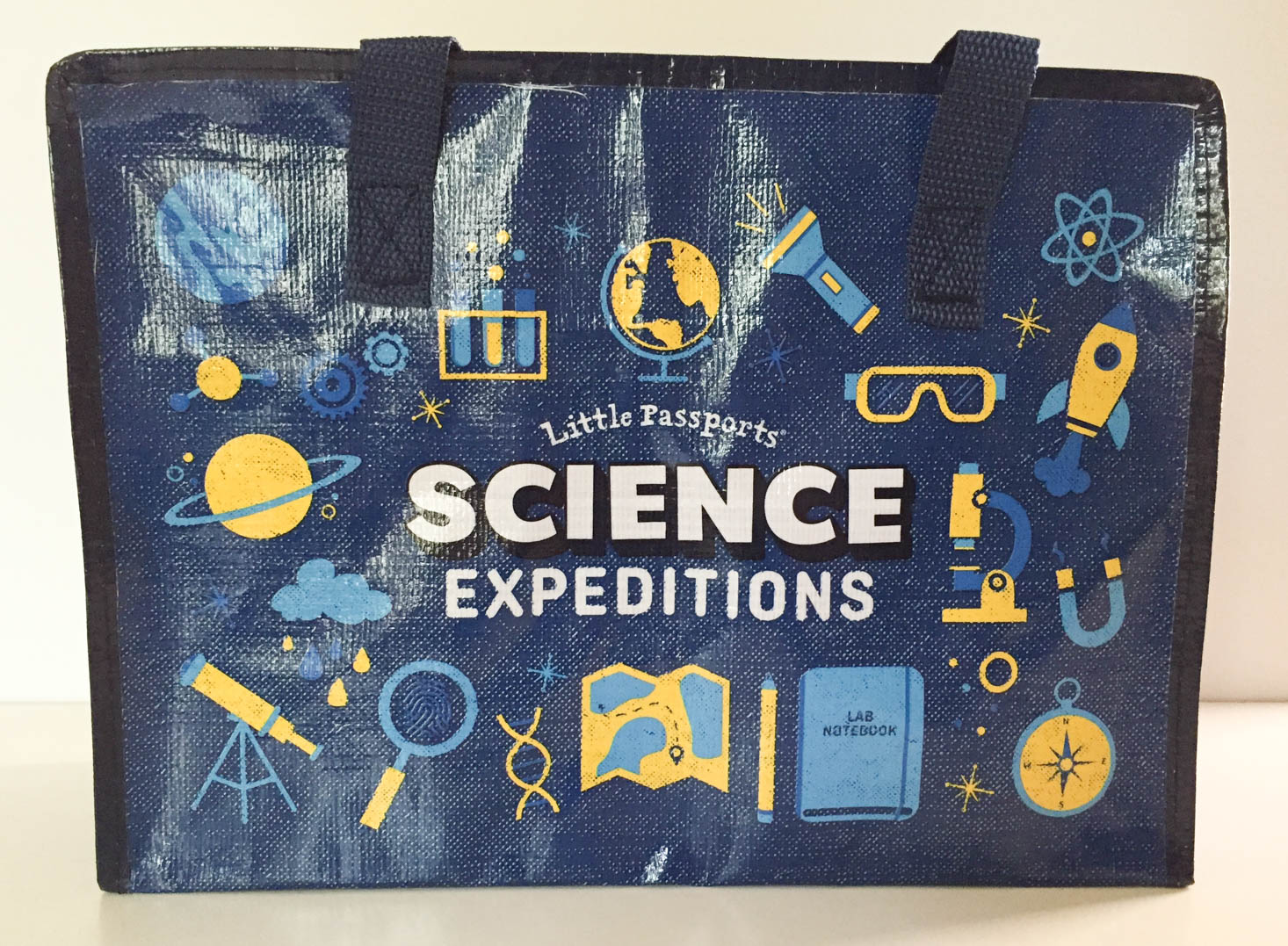
This handy "science case" is included in the first month's subscription. Cute!
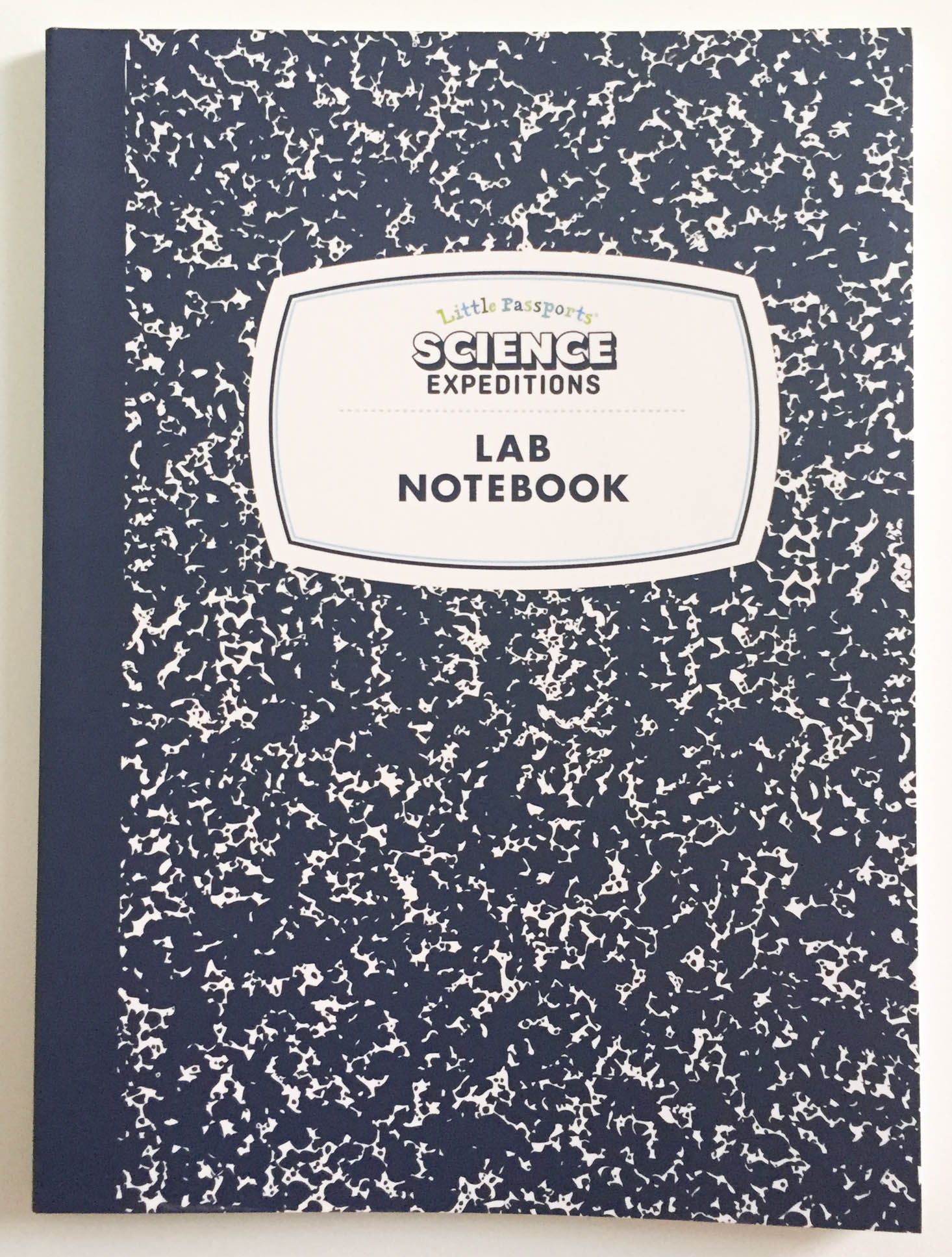
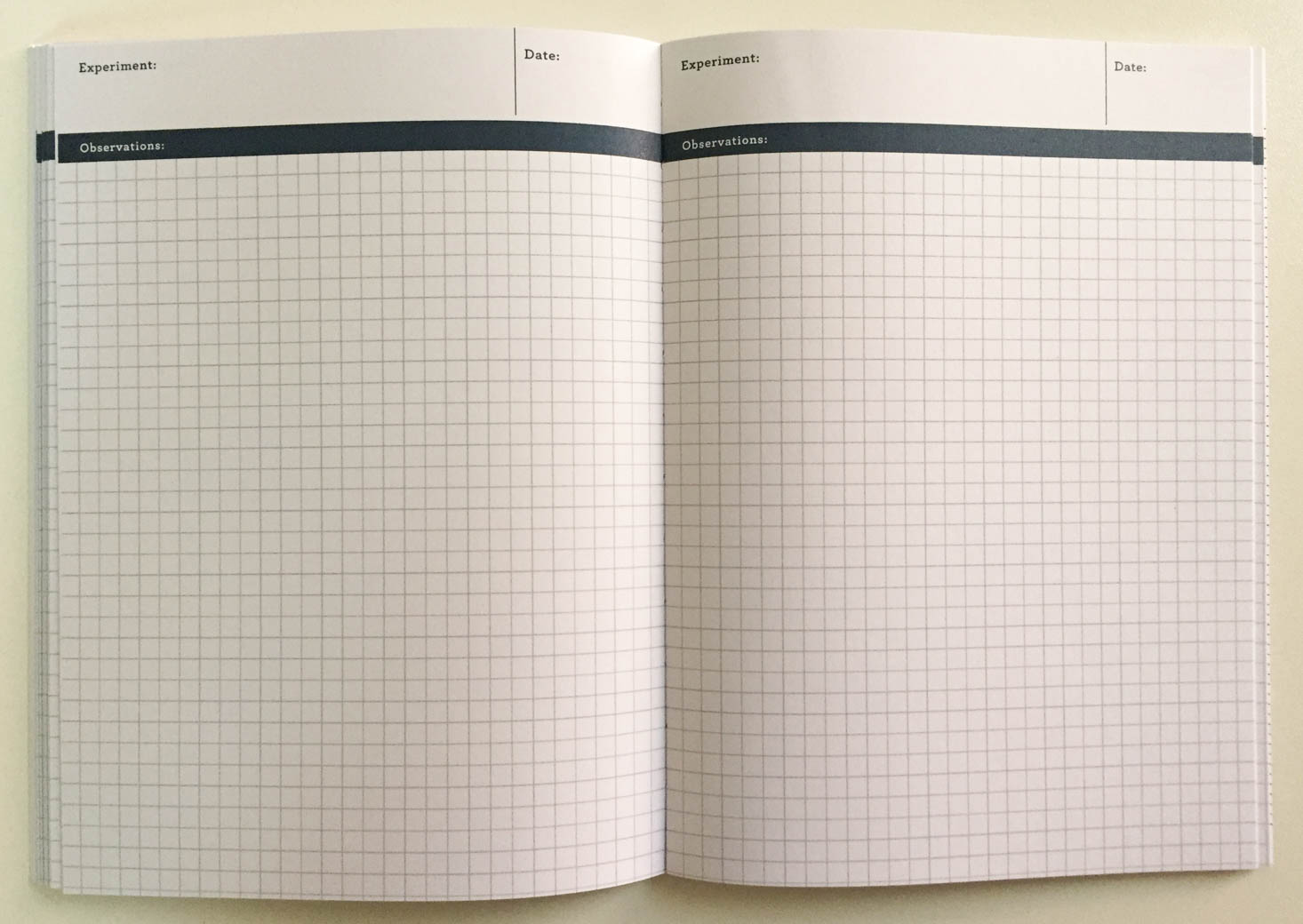
This laboratory notebook is also included in the first package. It's a nice sturdy one, too!
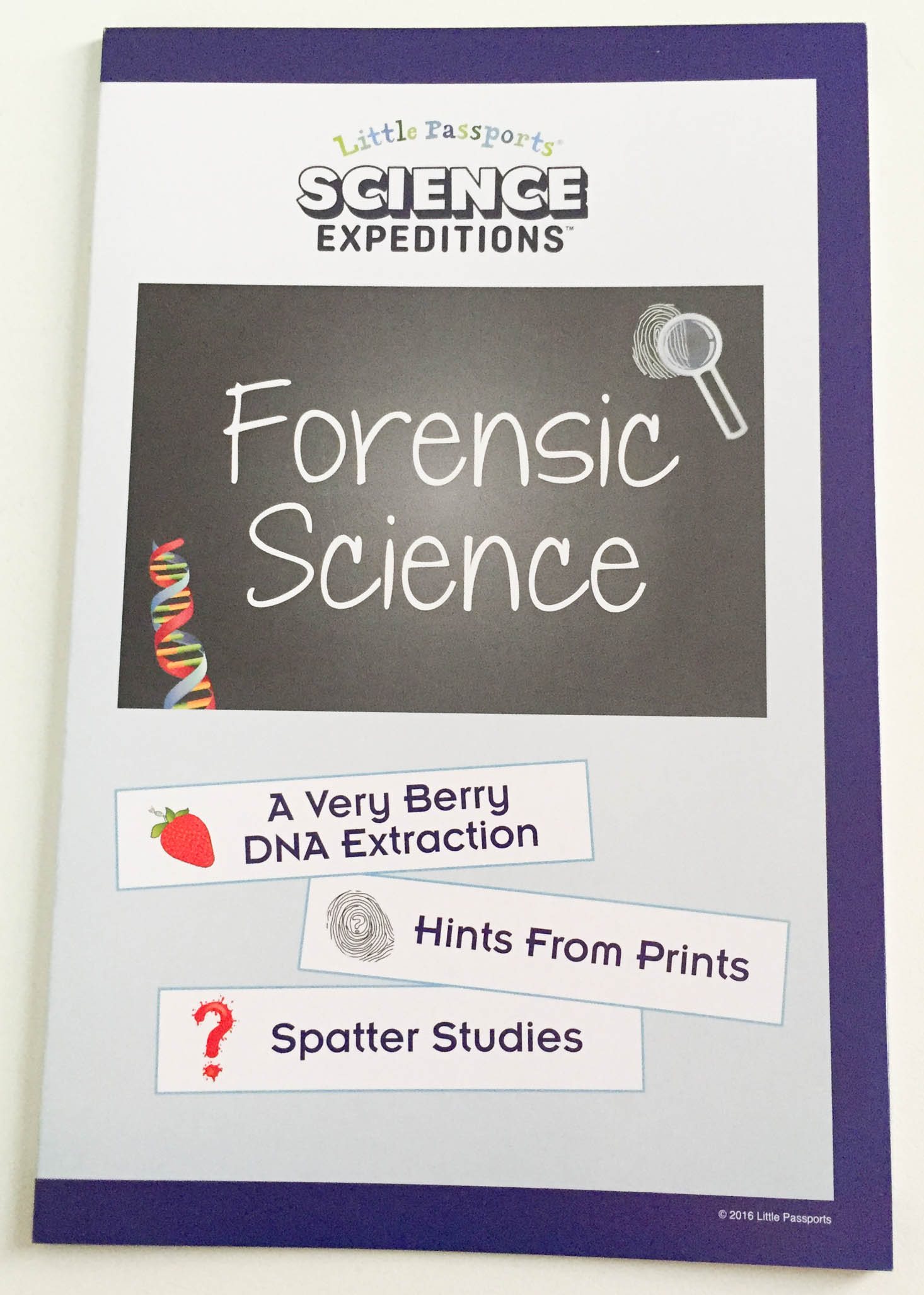
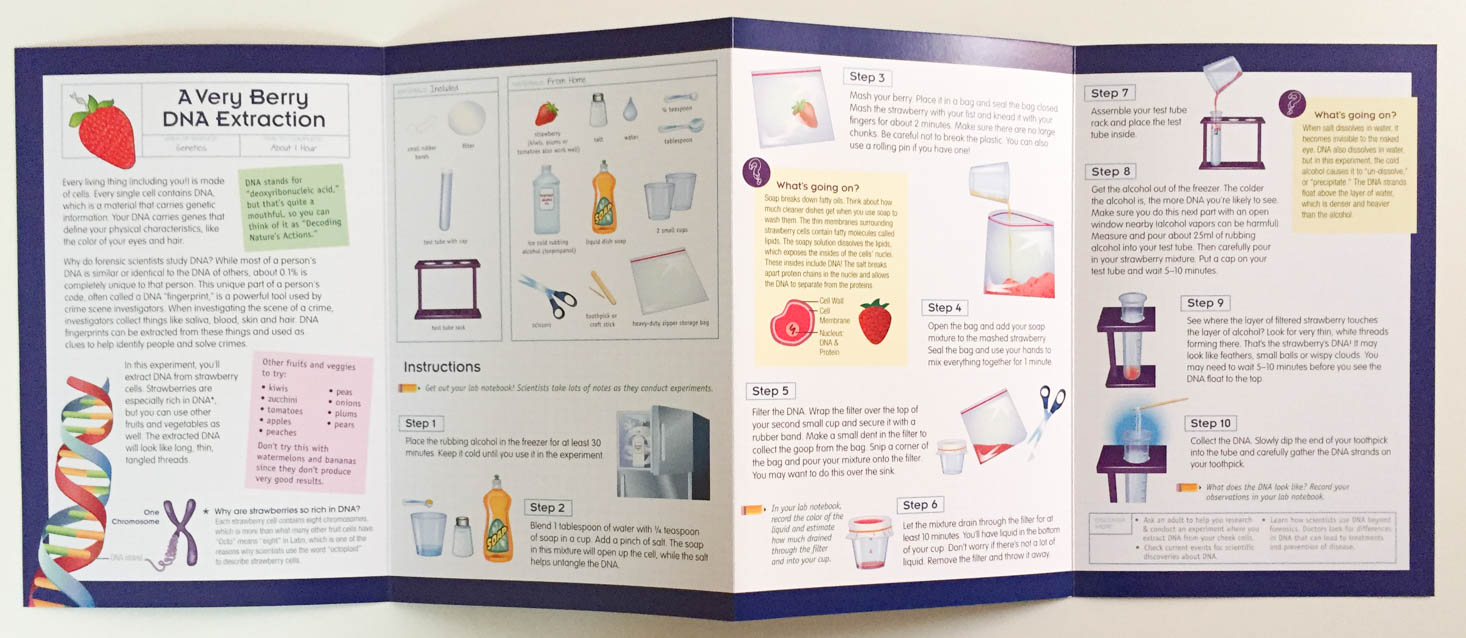
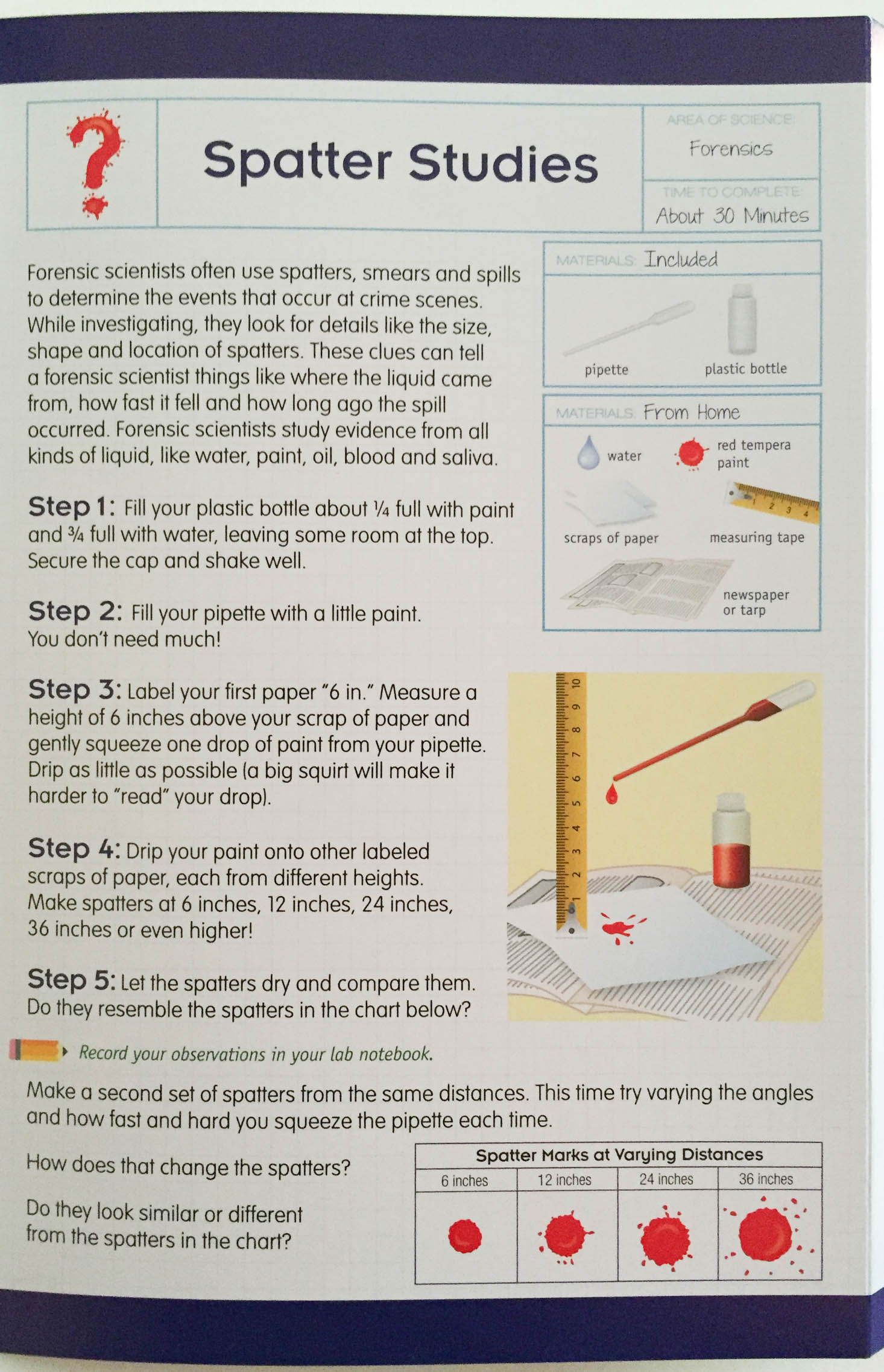
This instruction booklet was also included, showing how to do each of this month's three projects. We found the instructions very clear and easy to follow throughout.
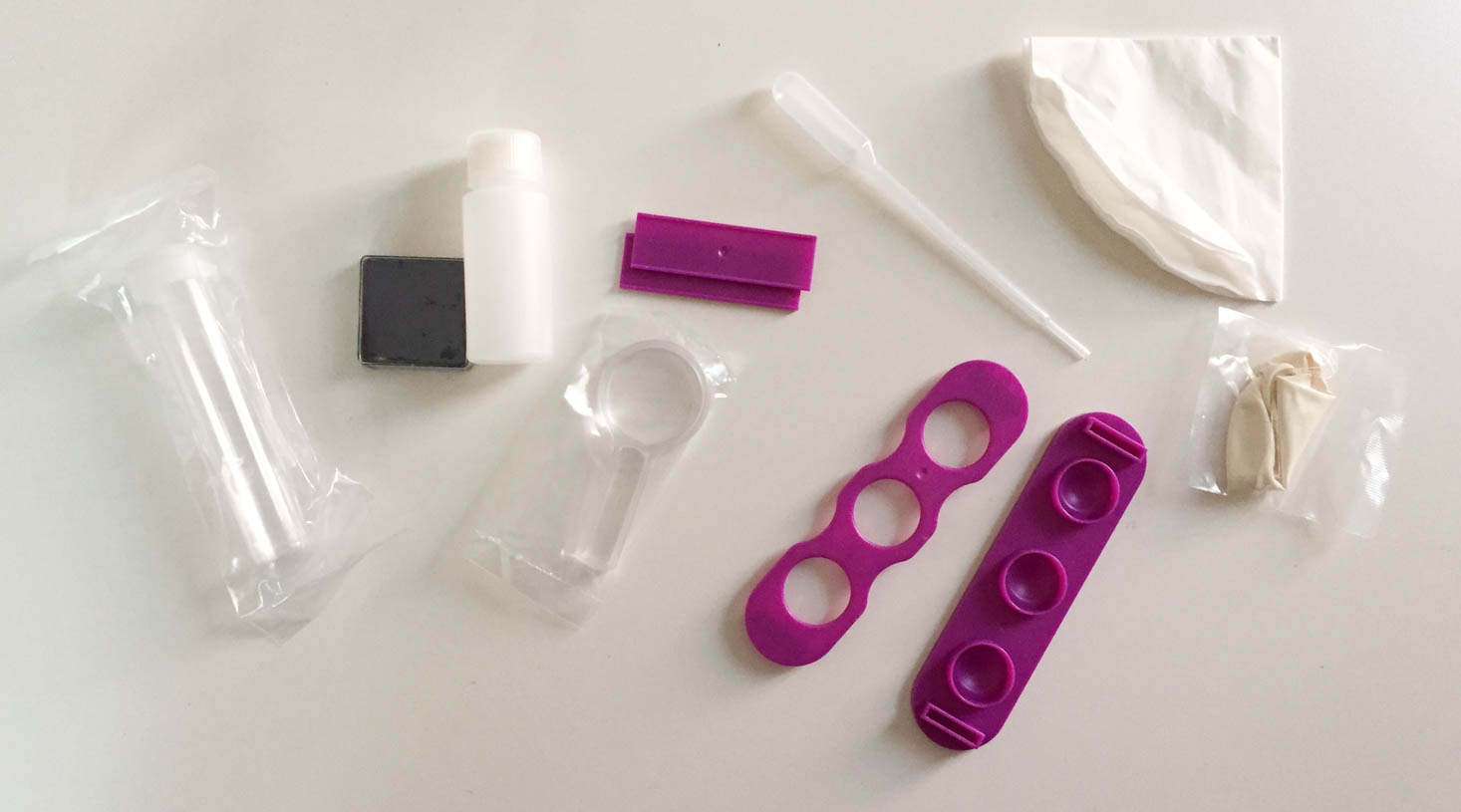
These are the supplies that were included for this month's projects. The only real issue I had with this first month of Science Expeditions was the number of items that we had to supply from home. I will speak more to those as I describe the experiments below.
Experiment #1: Fingerprint Analysis
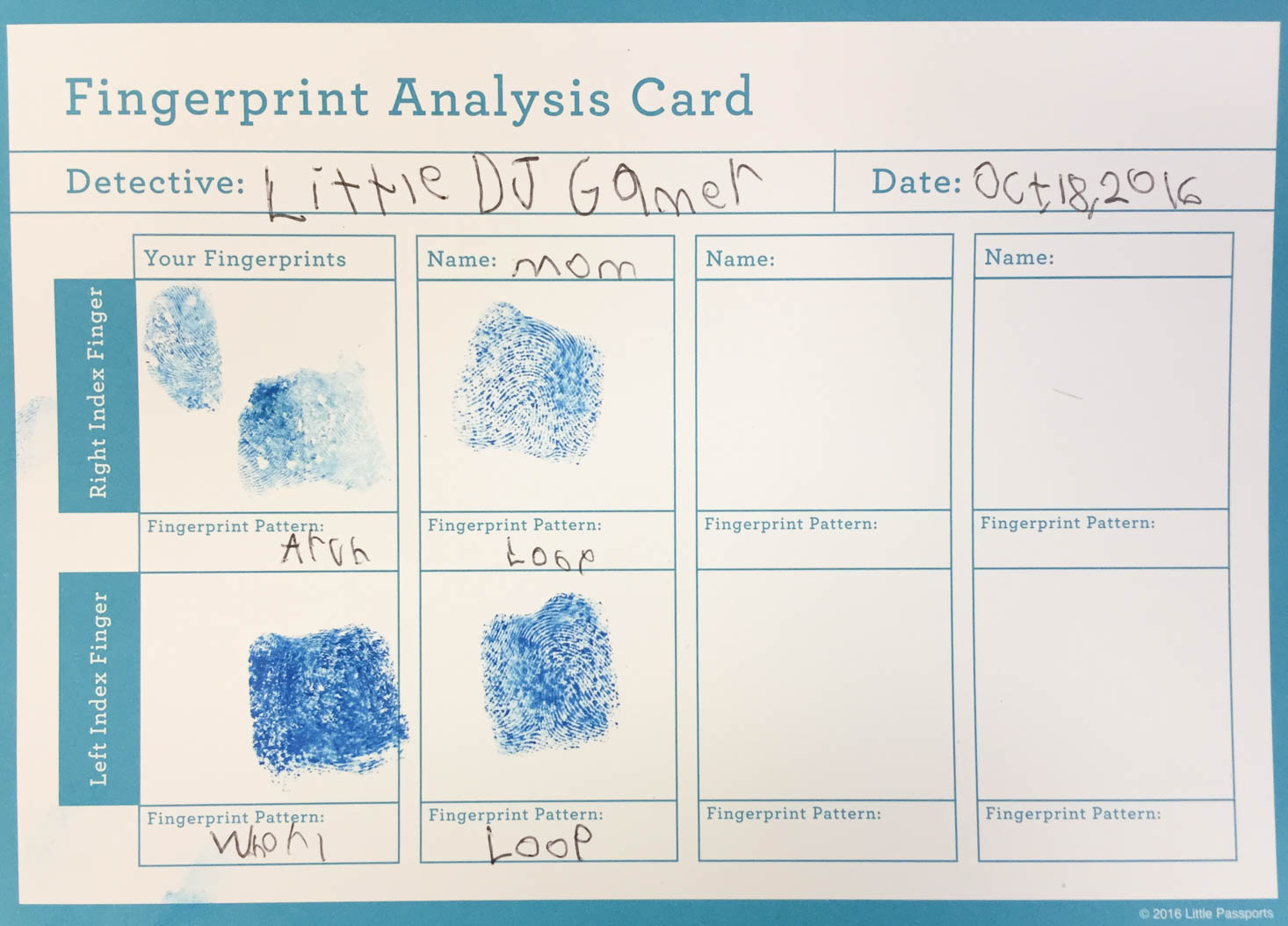
Our first project was all about fingerprints! There were two parts. For this first part, my son (age 10) learned how to roll fingerprints, and this card shows his index fingers and mine. (Please excuse his pseudonym! I told him to not write his actual name, haha.) We also studied some of the different pattern types and features of fingerprints, which he identifies here as arch, whorl, and loop.
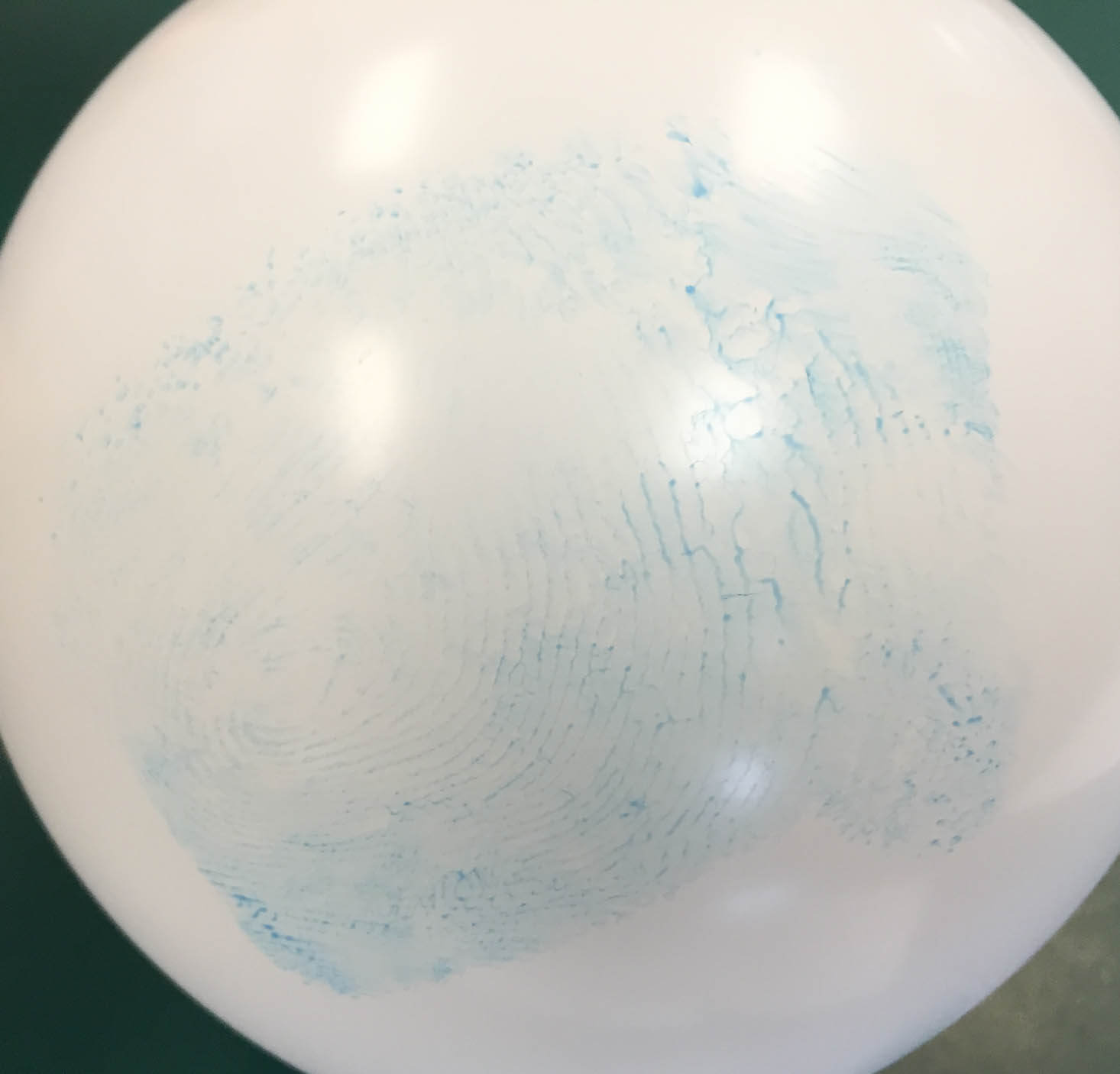
The second part was to roll a fingerprint onto this balloon. He then waited for it to dry, and then we blew it up to expand it. This made it easier to see and identify features like crossovers, islands, and deltas. I actually learned a lot about fingerprints myself!
Experiment #2: Splatter Reading
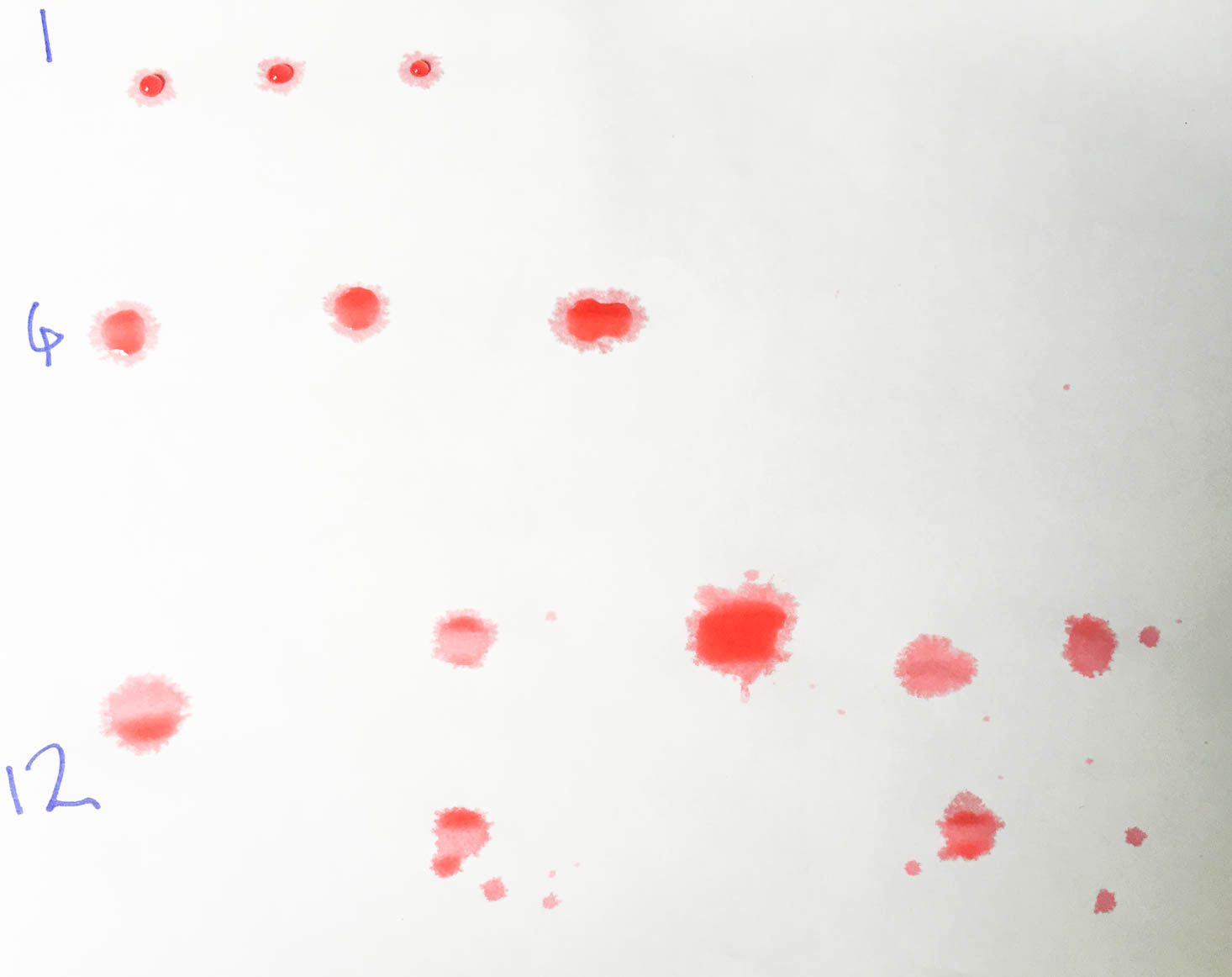
Our second experiment was all about spatter. We did not have tempura paint, which is one of the items we needed to supply from home, so we used food coloring instead. I think it worked just as well. We also had to supply paper and water for this activity. We mixed the food coloring with water and then used the dropper to drop it from these different heights (the number signifies inches). This taught my son about fluid spatter and how you can tell by the shapes and patterns of the liquid how far away the source of the liquid was. This was a fun and interesting activity, but it made me sad thinking about what spatter reading is generally used for in forensic science. Fortunately, my son didn't ask much about that.
Experiment #3: DNA Extraction
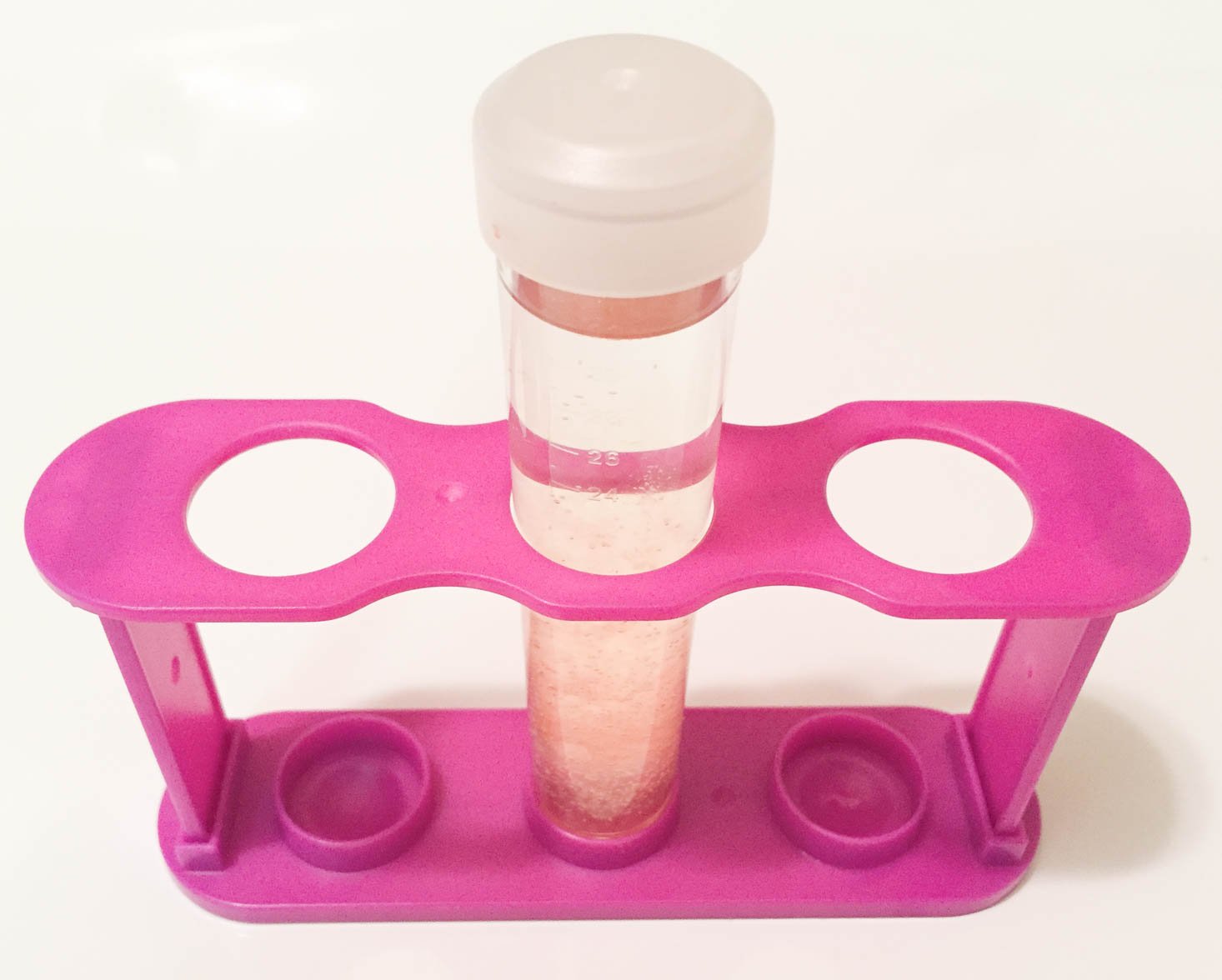
The final experiment was pretty intense! We extracted DNA from a strawberry! For this activity, we had to supply the strawberry, water, cups, dish soap, rubbing alcohol, a ziploc bag, and salt. We had to chill the alcohol first, and while it was cooling, we made a water, salt, and dish soap concoction. Then we put the strawberry into a ziploc and smashed it very thoroughly. Then we added the concoction to the strawberry and mixed well. We then put a coffee filter over the second cup and secured it to the top with a rubber band. Then we poured the mixture in and let it strain through. Meanwhile, we set up a test tube rack and poured 25 ml of cold alcohol into the test tube. We discarded the solid matter and filter, and then we added the strained liquid to the alcohol and let it sit for ten minutes. It's really hard to see the result, but you can kind of see that the resulting liquid has some white solid particles and some red solid particles in it. The white solid particles are strands of DNA! How very cool!
Verdict: Wow, we sure did learn a lot about forensic science with our first Little Passports Science Expeditions! I think my son really enjoyed it! Everything was fairly easy to do, but time consuming enough to make a lasting impression. I thought the materials and instructions were great, but I was a little surprised by how many things we had to supply from home. Overall, however, I thought this was a fantastic value and a really fun, engaging science kit!
What do you think of Little Passports Science Expeditions?





Please do not enter your email address in the Name field or in the comment content. Your email address will not be published. Required fields are marked *. Remember to post with kindness and respect. Comments with offensive language, cruelness to others, etc will not be approved. See our full comment policy here.